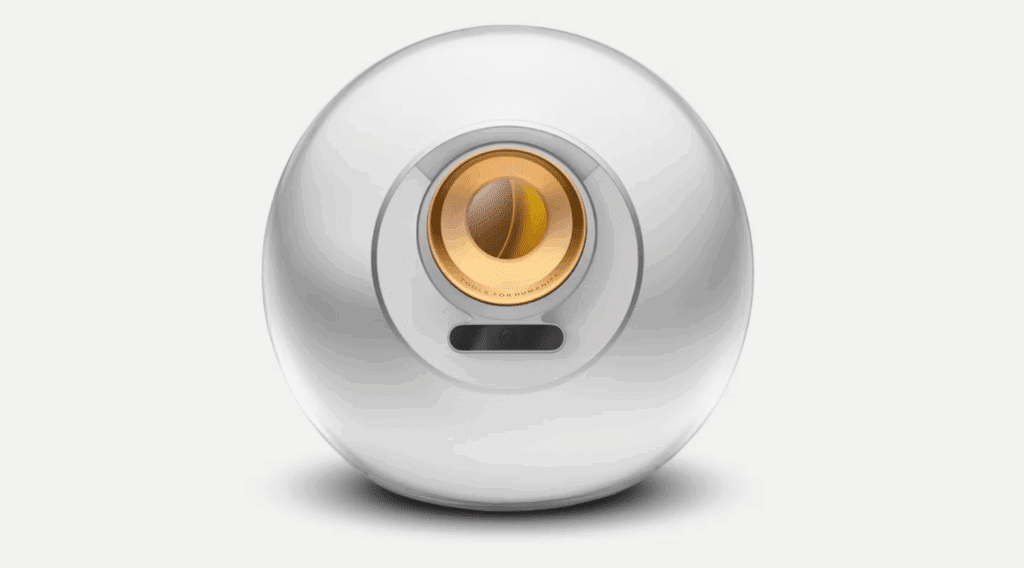Sam Altman’s Eyeball-Scanning Startup “World” Hits the U.S.: Are You Ready to Trade Your Iris for Crypto?

Hey, it’s Chad. Let’s talk about the latest sci-fi headline that’s now a reality: Sam Altman’s eyeball-scanning identity platform, World (formerly Worldcoin), is officially rolling out in the U.S. If you thought AI was the only thing blurring the lines between humans and bots, buckle up-because now your eyeballs are the new password, and the stakes are bigger than ever.

What Is World and Why Should You Care?
World is an identity management platform co-founded by Sam Altman (yes, the OpenAI guy) that uses a device called the Orb to scan your iris. The goal? To prove you’re human in a digital world crawling with bots and deepfakes. In exchange, you get a digital ID (World ID) and, if you’re into it, a little bit of their cryptocurrency. The company claims this is the “proof-of-human” standard for the internet age.
The U.S. launch is a big deal. The Orb is landing in Atlanta, Austin, Los Angeles, Miami, Nashville, and San Francisco, both at World’s own “World Spaces” and at partner locations like Razer’s retail stores. By the end of the year, they’re aiming for 7,500 Orbs across the country.
How Does It Work?
- You walk into a World Space or partner store.
- The Orb scans your iris and face (takes about 30 seconds).
- The scan generates an encrypted “IrisCode”-not an image, but a unique digital signature tied to you.
- You get a World ID and a small amount of World’s cryptocurrency (WLD) as a thank you5.
- Your World ID can then be used to sign in to various platforms (think Minecraft, Reddit, Telegram, Shopify, Discord, and more).
World is also launching a Visa-compatible “World Card” later this year. This will let you spend crypto assets from your World wallet at any online or physical store that accepts Visa. And if you’re wondering about dating apps, Match Group is piloting World’s age and ID verification on Tinder in Japan-romance scams, beware.
Why Now? And Why the U.S.?
The U.S. is one of the most lucrative and tech-hungry markets out there. Plus, with AI-driven scams on the rise-think bots signing up for class-action settlements or faking financial aid claims-the need for robust identity verification is more urgent than ever. Adrian Ludwig, chief architect at Tools for Humanity (the company behind World), says this isn’t about handing out a few crypto tokens; it’s about unlocking a whole range of services that need to know you’re really you.
From Worldcoin to World: The Rebrand
World started as Worldcoin, with a heavy focus on crypto. But as the project grew, it became clear that identity verification was the real killer app. The rebrand signals a shift away from just handing out tokens to building a universal system for proving personhood in a world overrun by bots and deepfakes. Altman himself says, “We needed some sort of way for identifying, authenticating humans in the age of AGI (artificial general intelligence)”.
The Tech: The Orb and Beyond
The Orb isn’t just a shiny sci-fi prop-it’s powered by Nvidia’s latest Jetson chipset, offering nearly five times the AI performance of earlier models. The new version is more compact, uses fewer parts, and is designed for broader rollout, including self-service kiosks.
But World isn’t stopping at iris scans. They’re also testing ways to verify identity using NFC-enabled passports, allowing people to prove their age and nationality without giving up their biometrics. Integration with apps like FaceTime, WhatsApp, and Zoom is on the roadmap, aiming to make World ID a universal sign-in tool.
Privacy, Regulation, and the Global Backlash
Here’s where things get spicy. Not everyone is thrilled about trading their irises for digital convenience. Privacy advocates are raising alarms about biometric data being the “ultimate honeypot for surveillance”. Once your eye is linked to a global ID, you can’t exactly change it if there’s a breach.
World insists the Orb doesn’t store actual images, just encrypted codes. But regulators aren’t convinced. The project’s faced suspensions, fines, and outright bans in countries like Spain, Argentina, Kenya, and Hong Kong over concerns about excessive and unnecessary data collection. In the U.S., the regulatory environment is more welcoming-at least for now. World’s token, however, is still off-limits in New York State due to local rules.
Partnerships and Future Plans
World isn’t going it alone. Here’s who’s already on board:
- Visa: Launching the World Card for crypto payments.
- Match Group: Testing age and ID verification on Tinder in Japan.
- Razer: Hosting Orbs in retail stores.
The company is also talking to governments worldwide, with pilot projects in Taiwan and Malaysia, and more partnerships in the pipeline.
The Big Picture: Is This the Future or a Dystopian Beta Test?
World’s pitch is simple: as AI blurs the line between human and machine, we need a bulletproof way to prove who’s real. But the tradeoff is personal. Are you willing to swap your biometric data for digital convenience, crypto, and a universal ID? Or does this feel like the first step toward a Black Mirror episode?
As Altman put it, “We are building the foundational layer of the internet economy”. Whether that’s visionary or terrifying depends on how much you trust the people holding your iris code.